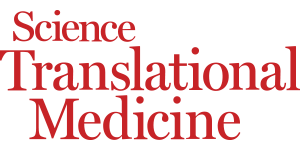History of firsts
Innovations in synthetic biology
Backed by a legacy of firsts*
Telesis Bio’s team of innovators, led by Dr. Dan Gibson, has been instrumental in pioneering several firsts in this field – producing over 6,000+ citations and 300+ patents to date.
Telesis Bio continues to build on our history of innovation, recently announcing a new generation of enzymatic DNA synthesis known as SOLA (short oligonucleotide ligation assembly), which will be integrated into our next generation Oligo Printer and Digital to Biological Converter instruments.


First synthetic SARS-CoV-2 genome
Telesis Bio Announces 8 New Products to Support the Scientific Community’s Battle Against COVID-19

Breakthrough
The first-ever completely synthetic genome of the novel SARS-CoV-2 pathogen
How it was done
Synthesized and assembled the ~30 kb coronavirus genome in early 2020
Why it matters
This critical resource, which was followed by the release of more than a dozen other SARS-CoV-2 genomes by Telesis Bio, allowed scientists to conduct research for the development of vaccines, diagnostics, and therapeutics without needing precious viral samples or stringent biosecurity control measures required for a live pathogen

First α/β launch of DNA printer
Digital-to-biological Converter for On-demand Production of Biologics

Breakthrough
The first commercially available, automated benchtop system for DNA synthesis
How it was done
Engineers took the tedious manual steps used for genome synthesis and automated them, designing an instrument that could assemble, synthesize, and clone DNA
Why it matters
The BioXp® platform dramatically shortens the time to synthesize DNA or mRNA, allowing scientists around the world to accelerate their workflows and get answers faster

First minimal genome
Design and Synthesis of a Minimal Bacterial Genome

Breakthrough
The first minimal genome, representing only genes strictly necessary for life
How it was done
Starting with synthetic Mycoplasma mycoides genome, repeated design-test-build cycles were run to assess the biological need for every gene, and then reduced the synthetic genome to just the 473 genes needed for survival
Why it matters
This work significantly advanced understanding of genome biology and paved the way for future development of synthetic genomes

First Synthetic Flu Vaccine
Synthetic Generation of Influenza Vaccine Viruses for Rapid Response to Pandemics

Breakthrough
The first flu vaccine based on synthetic DNA designed from a viral genome
How it was done
Viral coat proteins were synthesized based on their genome sequence and shared with collaborators at Novartis to use in the development of a flu vaccine
Why it matters
This project showed that flu vaccine candidates could be developed in days by relying on genome sequence and synthetic DNA instead of waiting for viral samples; it also led to flu vaccines that were included in the nation’s pandemic preparedness stockpile

First Synthetic Life
Creation of a Bacterial Cell Controlled by a Chemically Synthesized Genome

Breakthrough
The first-ever cell controlled by a fully synthetic, transplanted genome
How it was done
Synthesized and assembled the 1.08 megabase genome of Mycoplasma mycoides and transplanted it into a Mycoplasma capricolum cell
Why it matters
When the M. capricolum cell replicated, daughter cells carried only the M. mycoides DNA, demonstrating the successful conclusion of the first initiative to synthesize a living organism

Creation of the Gibson Assembly® Method
Enzymatic assembly of DNA molecules up to several hundred kilobases

Breakthrough
A revolutionary and elegant method for DNA assembly of genes, pathways, or genomes
How it was done
Developed a new isothermal method for assembling many overlapping DNA molecules in a single reaction using a 5’ exonuclease with a DNA ligase and polymerase
Why it matters
The technique quickly replaced tedious restriction enzyme cloning and enabled scientists to assemble synthetic DNA into molecules hundreds of kilobases long

First Genome Synthesized
Complete Chemical Synthesis, Assembly, and Cloning of a Mycoplasma genitalium Genome

Breakthrough
The first-ever complete genome built from scratch by scientists
How it was done
Synthesized and assembled all 582,970 bases of the Mycoplasma genitalium bacterium
Why it matters
This accomplishment validated the approach of using small fragments (5-7 kb), stitching them together into larger pieces, and cloning into vectors to create a fully assembled genome
More innovations coming soon
* Milestones attributed to us and/or our employees, prior to and during employment with us